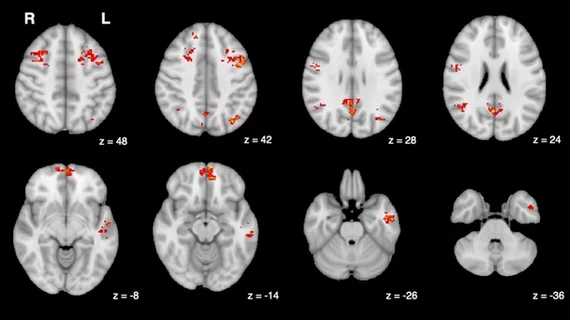New data on how pollution affects brain function is 'concerning'
Exposure to traffic pollution can alter the function of the brain. And it can do it in only a couple of hours [1].
So say the results of a new study published in Environmental Health, where experts detailed how exposure to diesel exhaust decreases functional connectivity of the brain on imaging. Using functional MRI exams, researchers determined that exposure to traffic pollution impairs activity in regions of the brain known to be associated with memory and internal thought.
The study’s senior author Chris Carlsten, from the Air Pollution Exposure Laboratory at the University of British Columbia, noted that these findings contradict some of what has been previously assumed regarding the impact of environmental pollutants on neural health.
“For many decades, scientists thought the brain may be protected from the harmful effects of air pollution,” Carlsten said. “This study, which is the first of its kind in the world, provides fresh evidence supporting a connection between air pollution and cognition.”
For the research, experts briefly and intermittently exposed 25 healthy adults to diesel exhaust and filtered air in a laboratory setting before having them undergo fMRI scans.
Researchers paid close attention to activity in the brain’s default mode network (DMN) when analyzing the scans. They found that the participants’ imaging displayed signs of decreased functional connectivity across multiple regions of the DMN following their exposure to pollutants.
The authors described this finding as “concerning,” given that altered connectivity in these regions has been associated with impaired cognitive performance and symptoms of depression. They suggested that this could impact a person’s everyday ability to work and even think.
The good news is that the altered connectivity patterns appeared to be temporary. However, individuals living in environments where exposure to pollutants is routine could be subject to long-term effects. Exactly how those long-term effects could manifest neurologically is yet to be determined, but it does warrant consideration, the authors suggested.
“Air pollution is now recognized as the largest environmental threat to human health and we are increasingly seeing the impacts across all major organ systems,” Carlsten said. “I expect we would see similar impacts on the brain from exposure to other air pollutants, like forest fire smoke. With the increasing incidence of neurocognitive disorders, it’s an important consideration for public health officials and policymakers.”

